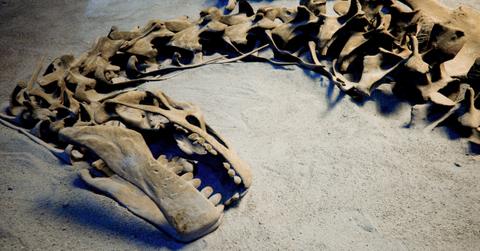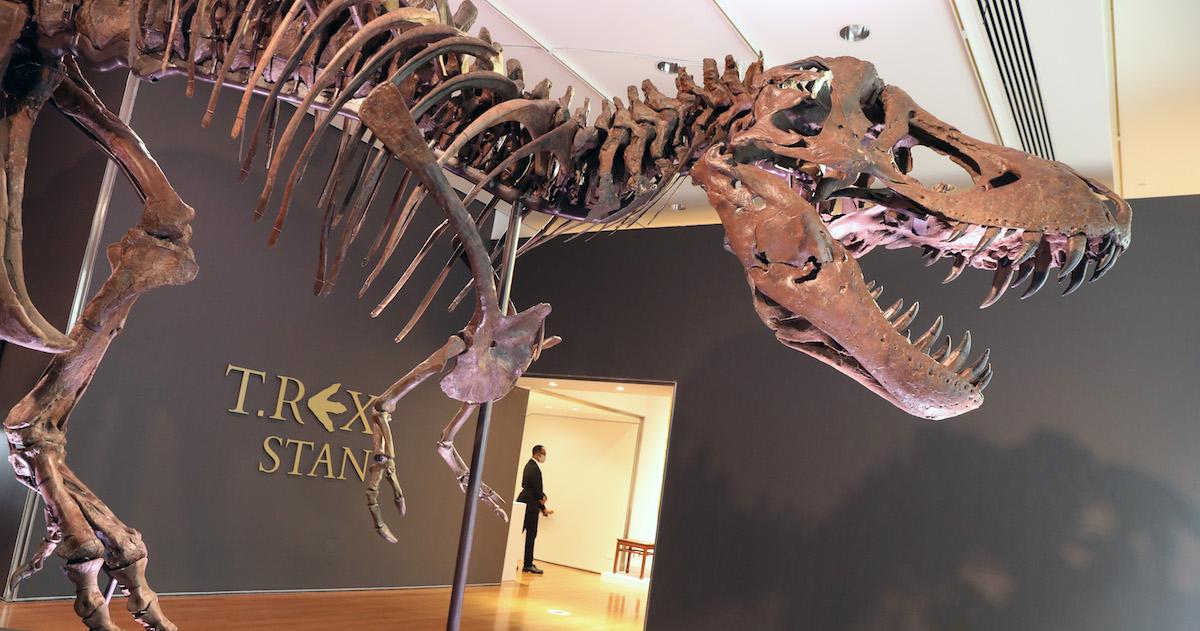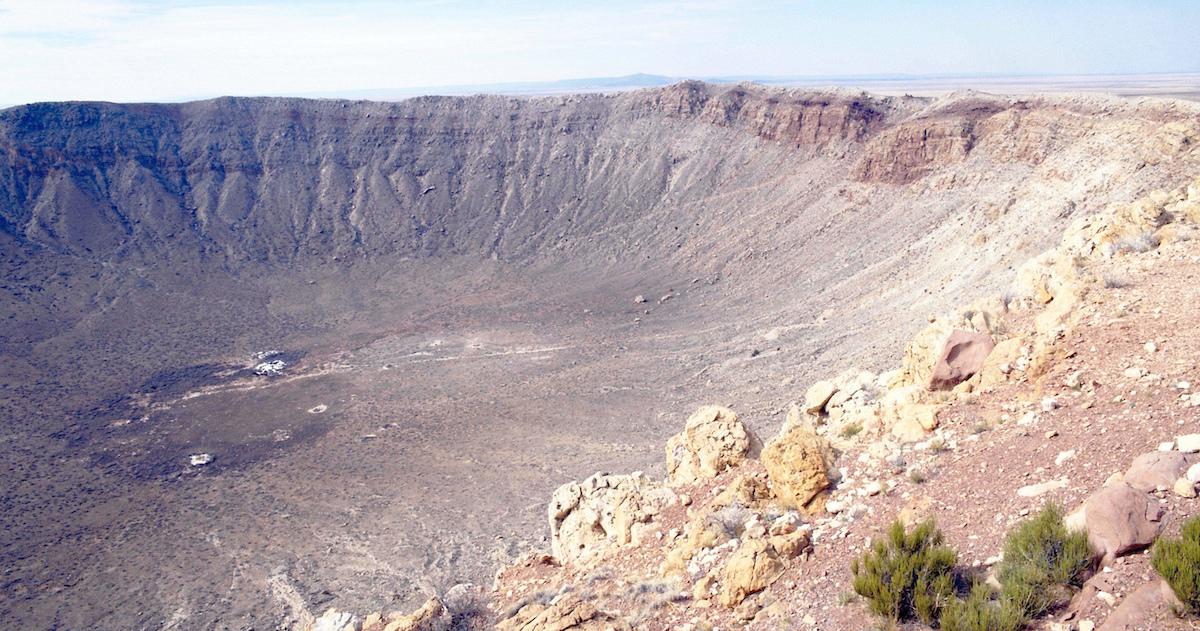Did Climate Change Cause Dinosaurs to Go Extinct?
Published April 14 2021, 2:11 p.m. ET

For centuries, paleontologists have been trying to pin down what exactly caused the dinosaurs to go extinct. There are many theories. Some people believe that it was disease or geothermal activity. Others think it had to do with a 6-mile asteroid hitting the planet and causing widespread change across the Earth. Some people believe it was aliens. But modern theories seem to be flirting with the idea that perhaps climate change was responsible for killing the dinosaurs.

Did climate change kill the dinosaurs?
According to Forbes, climate change is most likely what ended up killing the dinosaurs. The question is, what caused the climate to change so drastically that it could mean the extinction of billions of living things? There are two working theories as to what caused the climate to change: the first has to do with a massive asteroid and the second is linked to the Earth itself.
There is ample scientific evidence that a 6-mile asteroid crash-landed off the coast of Mexico 66 million years ago, resulting in a massive shockwave and an impossible cloud of dust that blotted out the sun. At the same time, there is also proof that tens of thousands of ancient volcanoes were erupting in locations across the globe, spewing ash and volcanic gases into the atmosphere and similarly, blotting out the sun. In either case, it was bad news for the dinosaurs.
According to Dr. Alessandro Chiarenza, lead researcher at Imperial College in London, the asteroid is the more likely culprit. Asteroids have been known to cause things called impact winters. These catastrophic events can last for decades and likely resulted in the sudden, mass extinction of three-quarters of the plant and animal species on the planet.
The volcanic eruptions that Chiarenza and his colleagues have been wrestling with just didn’t have the strength to disrupt the ecosystem on a global scale. They could easily have rendered whole swaths of continents unlivable, but they would not have affected plants and animals half a world away.

How did the asteroid damage the atmosphere?
According to the Weather Guys, the asteroid’s impact would have caused explosive damage and intense and widespread wildfires. The resulting soot would plunge the planet into darkness for at least two years, thereby halting photosynthesis and causing many plant species to just die out entirely.
Simultaneously, the sun being blotted out would certainly have lowered temperatures in many formerly temperate habitats, killing even the hardier plant species and leaving no food left for herbivorous dinosaurs. The death of the herbivores would mean the eventual death of the carnivorous dinosaurs, bringing their 165 million-year reign to a tragic end. It would not, however, mean the death of all living things.

Did anything survive the extinction of the dinosaurs?
The planetwide soot storm did not necessarily affect the habitats near Earth’s equator, according to Chiarenza. The build-up of carbon dioxide would have eventually warmed the planet enough that animals and birds in certain climate zones would have survived the meteorological fallout. These animals would have had to have been much smaller than their saurian neighbors, of course, but the arrival of the Pleistocene a few millennia later would see many of their relatives grow to astonishing sizes.
New evidence from Chiarenza’s think tank suggests that the volcanoes they originally thought were responsible for the event, might have actually helped matters in the end. The heat from the eruptions might have quickened the rise of temperatures following the impact winter, boosting the recovery for many animal and plant species. That’s right, you might have a volcano to thank for your very existence.